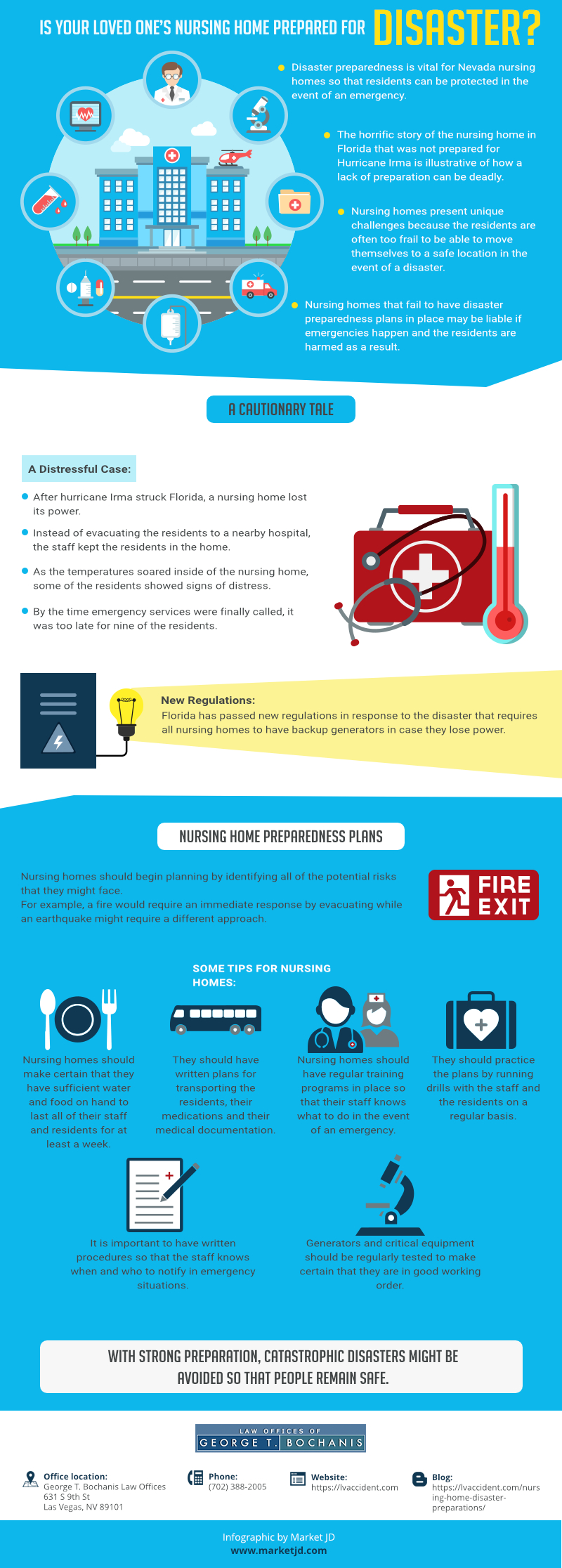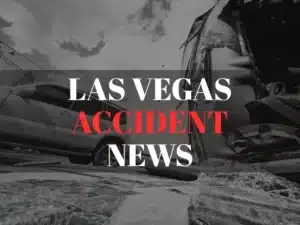Disaster preparedness is vital for Nevada nursing homes so that residents can be protected in the event of an emergency. The horrific story of the nursing home in Florida that was not prepared for Hurricane Irma is illustrative of how a lack of preparation can be deadly. Nursing homes present unique challenges because the residents are often too frail to be able to move themselves to a safe location in the event of a disaster. Nursing homes that fail to have disaster preparedness plans in place may be liable if emergencies happen and the residents are harmed as a result.
(Article continues below infographic)

A Cautionary Tale
After Hurricane Irma struck Florida, a nursing home lost its power. Instead of evacuating the residents to a nearby hospital, the staff kept the residents in the home. As the temperatures soared inside of the nursing home, some of the residents showed signs of distress. By the time that emergency services were finally called, it was too late for nine of the residents.
Florida has passed new regulations in response to the disaster that requires all nursing homes to have backup generators in case that they lose power. The story demonstrates the importance of having strong plans in place to protect nursing home residents everywhere in the event of a disaster.
Nursing Home Preparedness Plans
Nursing homes should begin planning by identifying all of the potential risks that they might face. Each potential disaster will require its own disaster preparation. For example, a fire would require an immediate response by evacuating while an earthquake might require a different approach. Nursing homes should make certain that they have sufficient water and food on hand to last all of their staff and residents for at least a week. They should have written plans for transporting the residents, their medications and their medical documentation.
Nursing homes should have regular training programs in place so that their staff knows what to do in the event of an emergency. They should practice the plans by running drills with the staff and the residents on a regular basis. It is important to have written procedures so that the staff knows when and who to notify in emergency situations. Generators and critical equipment should be regularly tested to make certain that they are in good working order. With strong preparation, catastrophic disasters might be avoided so that people remain safe.





